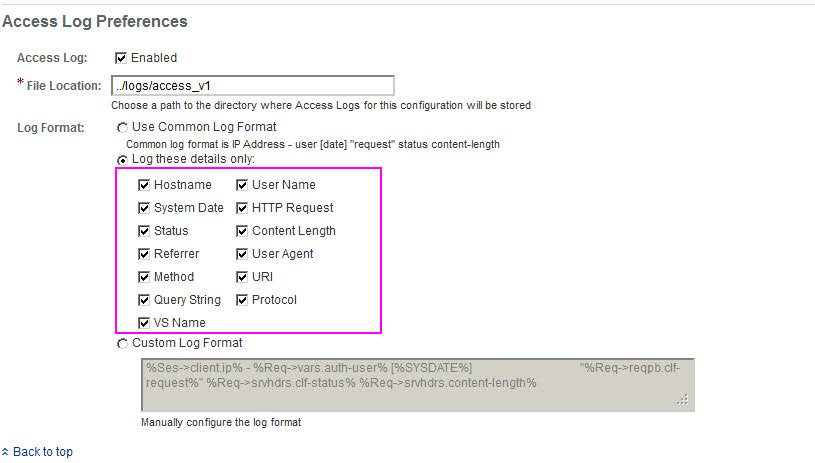Today I did changes in the log settings and enabled "Log these details only" options.

Seeing that the log was changed to another option, the new entries go out like these:
$ more access_v1
format=%Ses->client.ip% %Req->vars.auth-user% [%SYSDATE%] "%Req->reqpb.clf-request%" %Req->srvhdrs.clf-status% %Req->srvhdrs.content-length% "%Req->headers.referer%" "%Req->he
aders.user-agent%" %Req->reqpb.method% %Req->reqpb.uri% %Req->reqpb.query% %Req->reqpb.protocol% %vsid%
Once the variables weren't properly translated, I had to restart the virtual server and the log entries has been successfully updated.